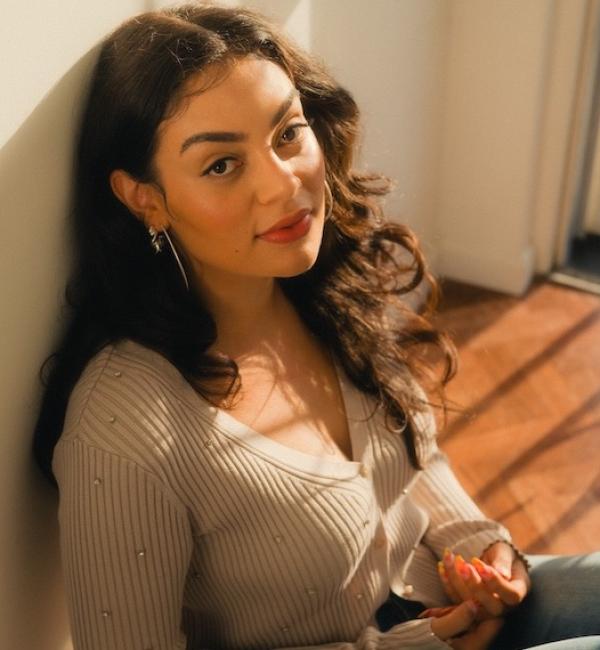via Rap Genius
If America’s culture is, as the writer Albert Murray once said, “incontestably mulatto,” it’s no wonder that one of its most successful pop stars is the culturally omnivorous Bruno Mars. Mars, who released his new single “Locked Out of Heaven” yesterday, was born in Hawaii to Puerto Rican and Filipino parents and is multi-racial himself, but that’s not even the beginning of the story. Much like the pop of the late 1950’s and early 1960’s, an obvious influence on and precursor to Mars’ own chart-toppers, his music brings together disparate strands of our heritage. For someone so early in his career, Mars has managed not only to have his name on a stunningly large number of smash hit songs, but to do something both timely and classic-sounding in the often-disposable realm of pop.
The modern inventors of that realm were the hit songwriters of the late 1950’s and early 60’s. Mostly working out of two buildings in New York City (the Brill Building and 1650 Broadway), young white songwriters would meld the R&B and blues song forms from so-called “race records”, the Latin rhythms they heard in the uptown streets, and teenage lyrical concerns – many of them were fresh out of high school themselves – into songs like “Under the Boardwalk,” “Will You Still Love Me Tomorrow,” “Spanish Harlem,” “Hound Dog,” “The Loco-motion,” and countless more, often sung by young black and Latin artists. That approach would spread its tentacles to Detroit, where Motown would use a similar assembly-line approach (teams of songwriters, arrangers, producers. and musicians handing songs off to singers or groups) to world-changing effect.
A similarly polyglot style would come to shape the music of the artist formerly known as Peter Hernandez. Mars’ work trades heavily on the pop forms perfected by the teams of writers mentioned above. Even his most under-developed early work has pre-choruses, bridges, and all the other hallmarks of pop songcraft. His songs, like those of his predecessors, are concise and effective, containing simple and catchy melodic ideas, and complete with the “ah”’s and “yeah yeah yeah”s that have carried songs along since well before John and Paul.
But, much like the pop of the past mixed up influences from different races and genres, Bruno’s music does as well. His music contains a significant amount of reggae, enough that he actually collaborated with a Marley kid, and his vocal style owes more than a little to modern, melisma-heavy R&B singers.
What makes Mars the most modern, though, and not just an updated version of that dude he used to impersonate, is the fact that he understands and incorporates elements of hip-hop. It’s no accident that his first hits (“Nothin’ On You” and “Billionaire”) were hooks for rap songs. He is able to use a certain type of lyrical swagger, and the reason both “Billionaire” and “Fuck You” (written by Mars and his production and writing partners, The Smeezingtons for Cee-Lo) work so well is that they graft a materialistic, aggressive (notice the prominent cursing in both tunes) attitude onto a gorgeous melody. This incongruity grabs the listener immediately, and is no small part of the fact that both songs were such giant hits.
While Mars is far from the only modern pop singer to sport some rap flavor, it goes deeper with him than most. His whole approach to music is far more hip-hop than its sound might at first indicate. Rap listeners are used to hearing loops – short musical phrases repeated over and over throughout the song. Many of Mars’ best songs simply move this template to the pop world. They use the same chord progression, without variation, through the whole tune – even while keeping pop song structure (verse, chorus, etc.) This is hardly unique to Mars – Katy Perry and Lady Gaga have experimented with these ideas as well. But Mars has arguably done it the best, thanks mostly to stellar arrangements. The songs change enough in instrumentation, dynamics, and structure that they don’t suffer at all for not changing chords. Think of his monster hit “Just The Way You Are,” which somehow managed to make a four-chord progression at a crawlingly slow tempo into a huge single. Or “Marry You,” which never loses its sense of fun despite its harmonic stasis. This is in contrast to the Gagas of the world who use their loops in a form closer to dance music, where changes of all kinds are kept to a bare minimum.
Mars has both his own songwriting and arranging chops to thank for his success with loops, but also hip-hop itself, and the people who listen to it. There is a huge audience that is used to, and in fact expects, music to stay largely static throughout songs. The fact that Mars has been able to use that fact to his advantage rather than as a limitation says a great deal about his songwriting ability and smarts. If he keeps up his current level of output, there may be room for him in the discussion of great pop songwriters, along with Goffin and King, Leiber and Stoller, Smokey Robinson, and Holland-Dozier-Holland. Will we still love him tomorrow? No one knows, of course, but only a fool would bet against him based on what he’s accomplished so far.
-Same Old Shawn for Rap Genius





